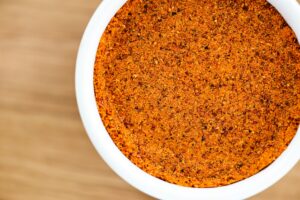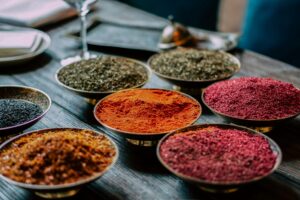
What a Cajun Meat Store Offers Beyond Smoked Sausage
When people hear the words “Cajun meat store,” they usually think of smoked sausage first. And sure, that makes sense. Smoked sausage plays a big role in a lot of Southern dishes. But if you’ve ever spent time cooking warm, hearty meals during the winter, you know that having a few more options can make a big difference in flavor and variety. A Cajun meat store often carries more than just the basics. February is a great month for gumbo, soups, and slow-cooked meals that fill the kitchen with deep, rich smells. Especially when the days are colder and daylight is short, there’s comfort in a bowl that feels full. That’s when it helps to look around for what else might belong in the pot. Whether you’re cooking gumbo from scratch or just adding to a base, the right ingredients bring out the best in every bite. More Than Just

How Monthly Cajun Dishes Start With the Right Spice Blend
When February rolls around, we start reaching for bowls and thinking about meals that feel warm and steady. Cold nights call for something that sticks to your ribs, and gumbo fits the bill just right. It’s rich, familiar, and full of flavor. A solid Cajun spice blend is how it all begins. Whether you make gumbo once a month or every other week, you need a dependable base. That first layer of seasoning matters more than it seems. It shapes the whole pot from the first stir through to the last bite. When the blend is balanced, your meals feel homemade even when you’re short on time. Let’s take a closer look at how the right mix of spice can make each month’s gumbo feel new without ever losing what makes it comforting. Using Spice to Set the Tone for Every Month Gumbo might look the same at first glance,

The Difference Between Cajun and Creole Spice Mixes Explained
We hear it all the time, people talk about Cajun and Creole spices like they’re the same. But they’re not. These two blends come from different roots, and each one can change the flavor of a dish in its own way. When it comes to making gumbo, especially during the colder months, knowing the difference can help you build more thoughtful meals. A good creole spice mix brings depth and balance, and it works especially well in hearty soups and one-pot dishes like gumbo. When you’re faced with that choice between Cajun and Creole in the grocery aisle or in your own pantry, it’s more than just heat level. The ingredients, herbs, and even the way they’re used play a part. We’re going to walk through what makes them unique, how they affect flavor, and how they each shine in a winter bowl of gumbo. What’s in a Creole Spice

Can Creole Seasoning Blend Be Used for Winter Soups?
When colder months settle in, warm and filling soups become the go-to dinner option. Whether it’s a weeknight meal or something you let simmer quietly on a weekend afternoon, the way a soup tastes comes down to the flavors layered into it. Using a creole seasoning blend can give your soup that extra something without needing to start from scratch every time. Creole seasoning brings just enough warmth to feel comforting but not so much heat that it overwhelms the pot. That’s especially helpful when you’re working with foods that have lighter flavors. Gumbo is a great example of how this kind of blend can carry a dish without making it too spicy. If you’re thinking about using seasoning that works well in gumbo to flavor your soups, the key is knowing how and when to use it so everything comes out balanced and full. What Makes Creole Seasoning Stand

What Makes a Gumbo Spice Blend Work Together
Cold months call for warm bowls, and gumbo has a way of making that kind of comfort easy to enjoy. It’s filling, flavorful, and familiar without being boring. But when it comes to gumbo, a lot of the experience comes down to one thing: the spice blend. Not just how spicy it is, but how well everything works together to bring out the deep, rich flavor gumbo is loved for. A good gumbo spice blend should bring balance. It should pull the meat, seafood, and roux into something that tastes like it’s been slowly built over time. Let’s look at how those spices come together and why getting that blend right makes all the difference when the weather turns cold and you’re reaching for something hearty. The Heart of Gumbo Flavor Gumbo spice blends do more than just bring heat. Done right, they add depth, background, and finish. The goal

The Shortcut to Real Louisiana Flavor with Gumbou
When the nights get longer and the air turns colder, a good bowl of gumbo hits differently. It’s the kind of meal that feels like a blanket, warm, filling, and packed with flavor. But if you’ve ever tried making gumbo from scratch, you already know it can take hours and leave a big mess behind. Not everyone has time for that. That’s why we put our focus into something that makes things a little easier without cutting corners. With Altha’s Gumbou 32.oz, you don’t have to start from zero to get the deep, homemade taste gumbo is known for. You get the comfort, the layers, and the right amount of heat, ready to build on with your favorite add-ins. It’s a shortcut, but a smart one, and it makes winter meals feel a whole lot easier to manage. What Makes Louisiana Gumbo Special Gumbo is one of those dishes that
